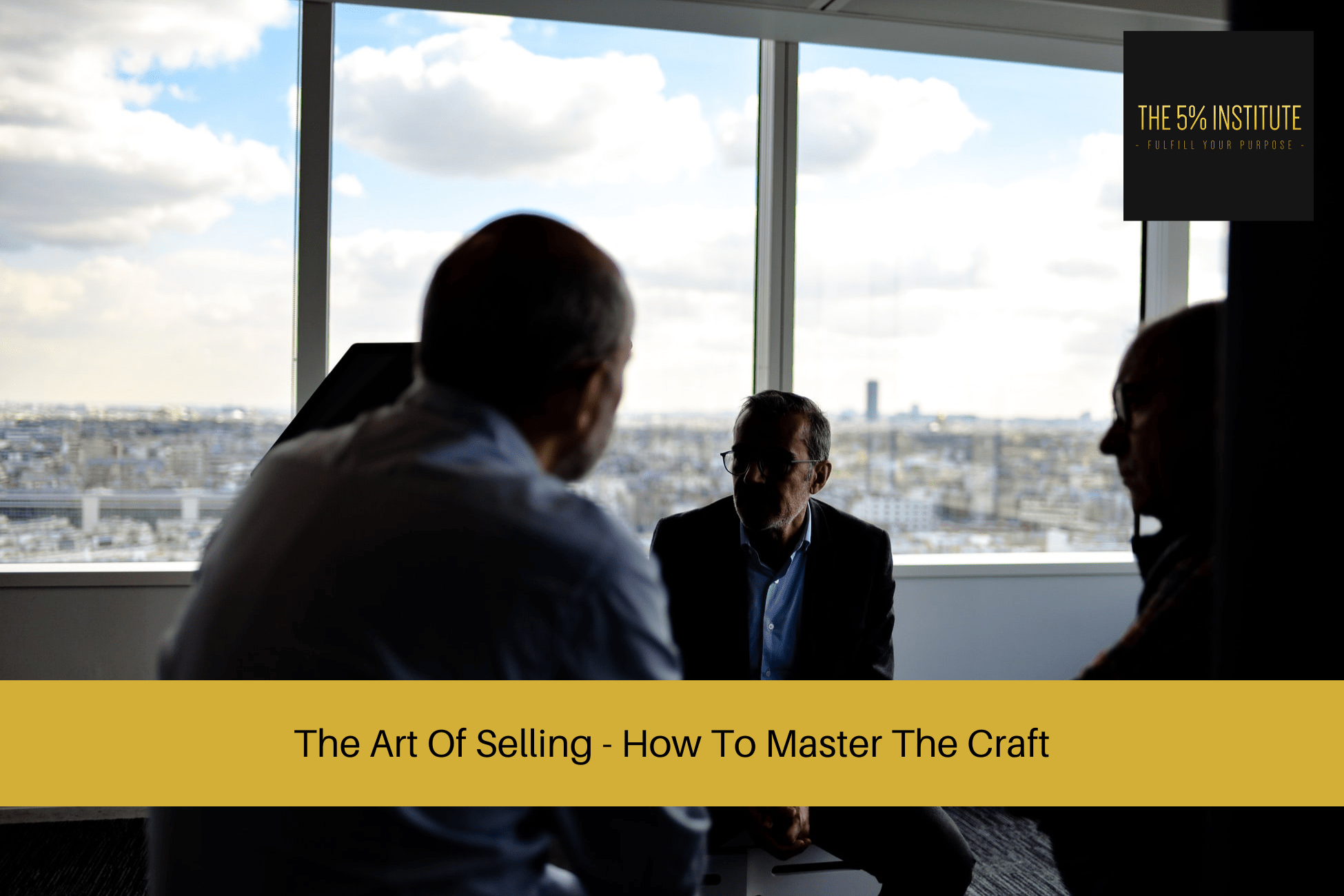
The Art Of Selling – How To Master The Craft
In today’s competitive business landscape, the art of selling is more critical than ever.
It’s not just about persuading someone to buy a product or service; it’s about building relationships, understanding customer needs, and crafting compelling narratives.
In this article, we’ll delve into the intricacies of effective selling, exploring strategies, techniques, and mindset shifts that can transform you into a sales maestro.
Understanding the Psychology of Buyers
Before you even think about making a sale, it’s crucial to understand what makes buyers tick.
Human psychology plays a significant role in purchasing decisions.
By delving into your target audience’s desires, pain points, and motivations, you can tailor your sales approach to resonate deeply with them.
Creating an Irresistible Value Proposition
A strong value proposition is the heart of successful selling. It’s the unique combination of benefits that your product or service offers.
Craft a value proposition that clearly communicates how you can solve a problem or fulfil a need better than anyone else in the market.
Building Trust and Credibility
Trust is the cornerstone of any successful relationship, including those between buyers and sellers.
Establishing credibility through transparent communication and delivering on promises builds a solid foundation for long-term customer loyalty.
The Power of Effective Communication
Effective communication goes beyond words; it involves body language, tone, and empathy.
Tailor your communication style to match the preferences of your audience, and always remember that building rapport is just as important as delivering your message.
Mastering the Art of Selling With Active Listening
Listening is an art often overlooked in sales. Actively listen to your prospect’s concerns and needs.
This not only helps you tailor your pitch but also shows your genuine interest in helping them find the right solution.
Adapting to Different Personality Styles
Every individual has a unique personality style, and understanding these styles can greatly enhance your sales interactions.
Whether your prospect is analytical, expressive, amiable, or driver-oriented, adapt your approach to create a comfortable and productive conversation.
Overcoming Objections with Finesse
Objections are not roadblocks; they’re opportunities to address concerns and provide additional value.
Anticipate objections and have well-prepared responses that highlight the benefits of your offering.
Leveraging Social Proof and Scarcity
Human beings are influenced by the actions of others.
Use social proof, such as testimonials and case studies, to demonstrate the positive experiences of previous customers.
Additionally, create a sense of urgency with scarcity tactics to encourage timely action.
Closing Deals: Techniques that Work
Closing a deal is the pinnacle of the sales process.
Various techniques, such as the assumptive close or the choice close, can guide the prospect toward making a decision.
However, remember that a close should always feel like a natural progression of the conversation.
The Role of Follow-Up and Customer Engagement
The sales process doesn’t end with a closed deal.
Consistent follow-up and engagement show that you value the customer beyond the sale.
Personalized interactions and providing ongoing support can lead to repeat business and referrals.
Turning Challenges into Opportunities
Sales is a dynamic field with its share of challenges.
View these challenges as opportunities for growth and improvement.
Adapt to changes in the market, learn from your experiences, and refine your approach accordingly.
Staying Resilient in the Face of Rejection
Rejection is inevitable in sales, but your response to it can make all the difference.
Cultivate resilience and a positive mindset. Use rejection as a chance to learn, refine your pitch, and come back stronger.
Ethical Selling: A Path to Long-Term Success
Ethical selling isn’t just the right thing to do; it’s also a smart business strategy.
Build a reputation for honesty, integrity, and customer-centricity. Long-term success is built on trust and ethical practices.
Embracing Continuous Learning and Improvement
The world of sales is constantly evolving. Embrace a mindset of continuous learning.
Stay updated on industry trends, explore new techniques, and invest in your personal and professional development.
Conclusion: Mastering The Art Of Selling
Mastering the art of selling is a journey, not a destination.
By understanding buyer psychology, honing your communication skills, and maintaining ethical practices, you can become a true sales artist.
Remember, it’s not just about making a sale; it’s about making a lasting impact.
Want To Close Sales Easier?
Are you committed to closing sales a lot easier, and consistently?
If so, you should check out our self-paced and affordable online sales training program; The 5% Sales Blueprint.
It’ll give you everything you need to close sales consistently.
To learn more, simply click on the link below for more information.
Our Online Sales Training Program – The 5% Sales Blueprint.
The Art of Selling – FAQ’s
How can I overcome my fear of rejection in sales?
Overcoming the fear of rejection in sales requires a combination of mindset shifts and practical strategies.
Remember that rejection is a natural part of the sales process and not a reflection of your worth.
Focus on the value you provide and the solutions you offer.
Develop a resilient attitude by learning from rejections and using them as opportunities to improve.
Practice positive self-talk, visualize successful outcomes, and gradually desensitize yourself to rejection by setting small goals and celebrating your achievements.
What role does emotional intelligence play in effective selling?
Emotional intelligence (EI) is crucial in effective selling.
It involves understanding and managing your own emotions while empathetically recognizing and responding to the emotions of others.
EI helps you build rapport, establish trust, and create meaningful connections with your prospects and customers.
By tuning into their needs, concerns, and motivations, you can tailor your approach, address objections more effectively, and ultimately increase your chances of making successful sales.
How do I strike a balance between persistence and being pushy?
Striking the right balance between persistence and being pushy requires finesse.
Persistence involves consistent follow-up and genuine interest in helping your prospect.
However, being pushy can turn them away. Listen to their cues, respect their boundaries, and focus on providing value.
If a prospect expresses disinterest or asks for time, gracefully step back but keep the door open for future communication.
Remember, it’s about nurturing relationships, not forcing a sale.
What are some creative ways to demonstrate the value of my product?
Demonstrating value creatively can set you apart.
Consider offering personalized demos or free trials to allow prospects to experience the benefits first-hand.
Use storytelling to showcase real-life scenarios where your product solved a problem.
Provide case studies, before-and-after examples, or user-generated content that highlights tangible results.
Collaborate with influencers or industry experts to vouch for your product’s effectiveness.
These approaches engage your audience and illustrate the unique value you offer.
Can introverts excel in sales, and if so, how?
Absolutely, introverts can excel in sales!
Introverts often possess strong listening skills, empathy, and a thoughtful approach—all valuable traits in building relationships.
Leverage your natural strengths by focusing on in-depth research, understanding customer needs, and crafting tailored solutions.
Practice active listening to create genuine connections. Use your introspective nature to analyse and refine your sales strategies.
Remember that successful sales come from authenticity, not necessarily extroversion.



